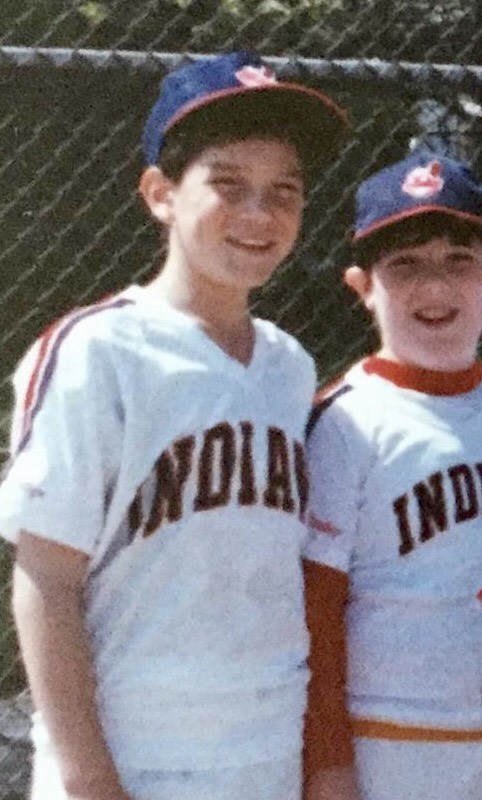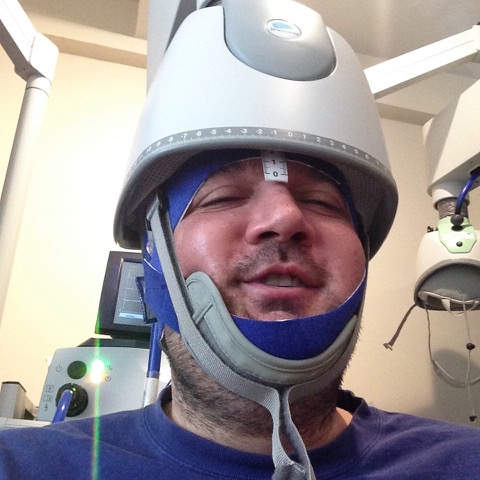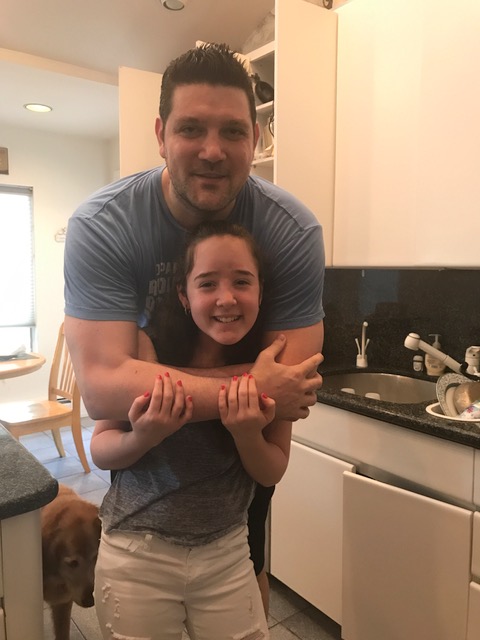I Wrestled With Darkness (PTSD and Depression) and Won

For the past two and a half years, I suffered with severe clinical PTSD, Anxiety and Depression – all of which have traditionally been classified under the umbrella of “mental illnesses.” The numbers say 42.5 million American adults (or 18.2 percent of the total adult population in the United States) have been diagnosed with some form of “mental illness,” and depression is the leading disability globally, but it is still rare for it to be openly discussed. In fact, many friends recommended that I stay private, keep quiet about my battle and just try to “blend in.” But, now, fully healthy and as happy as I’ve ever been, I feel compelled to share. Because I’ve gained so much through my struggles, I’m driven to help others find a path to recovery, break down misconceptions, and open dialogues related to sensitive topics. I believe we need to move away from the term “mental illness” and more inclusively talk about “mental health” on a spectrum, where we acknowledged we are all affected to varying degrees, and share in many common life challenges.
My Story
Back in the summer of 2014, after putting my nose to the ground for the previous 13 straight years working in the professional sports industry with leagues and teams all over the country, loving every day in the office, I moved to Florida to take on a role as the Chief Revenue Officer of the Florida Panthers hockey team. I landed in a new city, was excited to take on a new challenge, and was thrilled to come work with such a genuine group of owners and executive management team members. For six months, I was loving the in-office rewards of the day-to-day.
After experiencing some general "lulls" in my overall enjoyment of activities outside of the office, I expressed my concerns to a psychiatrist I had been seeing, and he decided to switch me from a common SSRI drug, Lexapro (that I had been taking without incident for the previous 10 years consecutively), to a drug I had never taken before, Paxil. The ramifications from that change, at the beginning of 2015, set off a chain of events that caused me to spend the next two and a half years in something I can only describe as a living hell. Along the way I learned that while genetics, life experiences, physical trauma, environment and even diet and inflammation can contribute in a big way to how one feels over time; PTSD, Anxiety, and Depression are very much a result of those factors creating chemical imbalances as well as other malfunctions within many parts of the body, not just the brain.
These are all PHYSICAL malfunctions of parts of the body/brain, just like other, more openly discussed diseases are PHYSICAL malfunctions of the body, such as: diabetes, heart disease, cancer, etc. The difference is, for some reason, in our society mental health complications are looked at as weaknesses and are covered-up, causing patients to suffer alone; whereas other diseases are openly shared, and patients are comforted throughout their recovery. I believe this may be due to the role that the "life experiences" factor can play in bringing about those physical malfunctions, leading people on the outside to believe that sufferers are "weak." (And the categorization of these issues as "mental illness" only exacerbates the issues.)
Growing up, despite having a very loving and supportive family and friends group, and being involved in many activities, I had a very difficult childhood, watching my older brother, four years my senior, experience a series of medical issues over a 20+ year span. Incredibly, he is doing well now, but beginning when I was nine years old, in chronological order, he:
-
Broke the largest bone in his body, his femur bone, in an accident and was placed in a body cast for a year, homeschooled.
-
Came down with A.L.L., a children's form of Leukemia, for five years-- which came along with chemo, radiation, spinal taps, homeschooling again; he fortunately went into remission, when he...
-
Flew out of the back of an open jeep while a friend was driving, landed on his head, was in ICU for a month and lost partial vision in one of his eyes
-
Came down with a relapse of A.L.L. Leukemia
-
Went into septic shock from a stronger chemo protocol
-
Fell into coma for almost three months, during which point my family did not know if he would have any brain function at all, IF he woke up
-
Finally arose from the coma and needed a shunt put in his head because too much fluid had built up in his the brain while in the coma
-
Went into kidney failure from the trauma the septic shock did to his organs and went on dialysis
-
Received a kidney transplant, donated by my father
-
Has most recently dealt with a number of issues related to the shunt, as well as blood clots
Back then, I didn't know from chemical imbalances as I was watching this all take place from a front row seat. I didn't know psychiatrists or psychologists, and I thought PTSD, Anxiety and Depression were just chapters in high school health textbooks, which defined the conditions simply as "seeing great atrocities, being on edge, or feeling sad." With this lack of knowledge, I coped the best way I could, and held in all the traumatizing memories from those experiences, never speaking to anyone about them. To everyone else, I was the smiley middle child of three boys who played on every sports team and was dealing just fine. I made my way through a wonderful experience at Cornell University, got involved with an incredible group of friends, walked on to the basketball team my senior year, and landed my dream job with the NBA league office upon graduating. I was hanging on just fine, as stressful work environments and public presentations seemed to bring out the best in me.

But, at age 25, while at the NBA, I began experiencing some higher than normal Anxiety symptoms and was unsure of the cause. I took the suggestion of an extended family member, went to a psychiatrist, and was put on 30 mg of the prescription drug, Lexapro. This drug served me well enough, along with the coping mechanisms I had learned to deal on my own, to live an enjoyable, mostly symptom-free life for the next 10 years as I worked in various markets around the country.
On top of witnessing the traumatic experiences with my brother, which I didn’t know were being "hard-coded" in my brain and doing PHYSICAL damage to my system, I dealt with three other major losses in my life during that time; the deaths of three close friends.
I was fortunate that despite all the difficult things I had witnessed, the Lexapro had kept me in a decent enough of a place chemically (as a nice band-aid dampening any symptoms), that I was greatly enjoying life and mostly in touch with my emotions – able to keep much of these "bad" experiences suppressed until... all of those experiences, and the damage they had caused PHYSICALLY to my system, started to creep up on me and take a more active role in my conscious mind and my day-to-day functioning. The switch in Florida, from Lexapro to Paxil, was the straw that broke the camel's back. My brain and my body no longer had the chemical makeup necessary; the Paxil wasn’t providing a strong enough band-aid to deal with the built-up PTSD, Anxiety, and Depression that I had previously been able to keep at bay.
When severe, these mental illnesses wreak havoc and the results are scary. I began to experience the following symptoms, which only partially describe the misery early on, and only got worse with time:
- Anhedonia (loss of interest in everything in life – food, sports, family, friends, dating – a complete numbness)
- Depersonalization and Derealization (out of body feelings that leave you to not even be able to recognize your own self)
- Loss of memory both short and long term
- Complete lack of emotional connection to family members and friends
- No vision of the future (inability to feel ambition, or see goals or mileposts)
- Loss of critical thinking skills and an inability to problem solve
- Social Anxiety about talking to anyone and everyone
- Agoraphobia (fear of leaving the house)
- Cognitive Dysfunction (I literally could not put sentences together, talk on the phone or have coherent conversations)
- Almost no connection to the world around me (no care for nor knowledge of what day of the week, nor what month it was)
- No "rewards center" (I had nothing driving me to go and accomplish tasks or enjoy any actions I might take)
- Groundhog's Day (waking up daily and feeling like there was no difference from one day to the next)
Somehow, I managed to go to work in Florida for roughly a week after the Paxil change, slipping deeper into the feelings above, until I finally hit a breaking point, spoke with our CEO, and asked to take a leave of absence for an undetermined amount of time. I didn't know how long these feelings (or lack thereof) would last and had NO idea about the road I was about to go down. (As an aside, the owners and management team of the Panthers could not have been nicer and more accommodating and I will forever be grateful that this happened while working for such a first-class organization.) I was saddened to have to leave a staff I helped to build almost from scratch (and apologize that I left new hires and friends I had made on the staff so early on), but I had no choice: my brain was "shutting down."
I returned to New York and the symptoms only got worse. Over the course of the next two-plus years, I spent most of my days laying in a bed, staring up at the ceiling, praying for each day to end so that I could fall back asleep and escape the hell. I didn't watch TV, didn't exercise, didn't listen to the radio and rarely had the energy nor cognitive ability to speak to friends. I went many stretches without eating. My mind was blank, and I was living through a nightmare I saw no end to. My only weekly activity involved going to doctors to try talk therapy (when I was capable), and different treatment modalities involving "cocktails" of prescription drugs which included: Lexapro, Paxil, Zoloft, Prozac, Latuda, Anafranil, Parnate, Luvox, Pristiq, Adderall, Xanax, Klonopon, Wellbutrin, Abilify, Mirapex, Zyprexa, Seroquel, Thorazine, Atarax, Buspar, Lithium, Lamictal, Vyvanse, Dexadrine, Trintillix, Remeron, Nuvigil, Provigil, Namenda, Effexor, Selegiline, and Rexulti. I tried those drugs in various combinations, prescribed by four different psychopharmacologist experts I saw for various periods over that stretch of time. Most of them fell into one of four main categories of anti-depressants (SSRIs, SNRIs, MAOIs, and Tricyclics) while others were "add-on" drugs that were meant to support or boost the main drug at work.
Each drug came with its own set of awful side effects. Thanks to Parnate, one of only two MAOI drugs I tried, I developed orthostatic hypotension (or severe low blood pressure: 90/50). Feeling as if I'd faint if I stood up, I crawled down the stairs in my house, crawled on the driveway to my parents' car, and my father drove while I laid down in the front seat, on the way to a hospital emergency room. There, I was given a steroid, Florinef, for five days inpatient until the Parnate was out of my system and my blood pressure returned to normal.
In addition to drugs, I tried the following other treatments:
- 15 sessions of acupuncture, two different rounds
- 22 treatments of Transcranial Magnetic Stimulation or "TMS" where they shoot electromagnetic waves into your brain for 40 minutes each session, trying to correct the imbalance
- 16 treatments of Electro-Convulsive Therapy or "ECT" over five weeks, where they shock your brain into seizure while under general anesthesia, again trying to correct the imbalance; many may know this as "shock therapy" from the movies

Unfortunately, despite all these efforts, in addition to group and individual talk therapy and Cognitive Behavioral Therapy, I saw little to no improvement. I thought my life was over, and nothing around me mattered. However, something in the back of my mind told me to keep fighting and keep trying different treatments until something got me out of that hole. I had to turn this around and find purpose in my struggle.
I finally started to make a turn for the better in February of last year (2017). I began seeing an "integrative psychotherapist" who sent me to a weekend "breathing" course called "The Art of Living." Through this psychotherapist and this course, I learned how, over time, certain breathing practices worked to naturally repair the "polluted and affected" central nervous system. The active breathing was like a hard brush, with each conscious breath scrubbing the "traumatic pollutants" that had built up over time, off of my central nervous system, opening me up to feeling emotions and desires once again, as well as regaining cognitive functioning and drives. This psychotherapist also sent me to a new psychiatrist in Manhattan who is an expert in mixing Eastern and Western medicine. Visiting this doctor proved to be the true turning point on my road to recovery.
After discussing my background, he explained to me that this consistent "dysfunction, numbness and misery" I was feeling was due not only to a chemical imbalance in neurotransmitters like serotonin, norepinephrine and dopamine, but also to other PHYSICAL malfunctions in my brain, body and central nervous system. These malfunctions involved the speed of various brain waves, and caused parts of my brain that were supposed to talk to one another, to stop talking, while parts of my brain that weren't supposed to talk to one another started doing so. The PTSD (which was his core diagnosis), Anxiety, and Depression caused these physical malfunctions in my brain.
The pills and procedures that had failed me before were insufficiently correcting the balance of my neurotransmitters while ignoring my brain wave malfunctions. They also ignored the lack of production of important chemicals coming from my adrenal glands; chemicals I was no longer producing due to my body's continued attempts to balance out previously high-stress situations.
My “East-meets-West” psychiatrist began by augmenting the Lexapro I was back on with various over-the-counter herbal supplements. He said these supplements were needed to help the Lexapro (or whatever main drug I was being treated with), to work better and more effectively produce the neurotransmitters I needed. The Lexapro and the other 50 some-odd Rx drug combinations alone were not sufficient in a vacuum. He also prescribed an alpha-stimulation machine (that looks like earphones attached to an old MP3 player), that I clipped onto my ear lobes and wore for an hour a day, to even-out my brain wave activity.
After combining this doctor's more "natural" treatments, with the Lexapro, I started to get my function, feelings and desires back slowly but surely, and am now back to a point where I feel "myself" again, fully healthy and ready to take on the world; I’m at the happiest place I have ever been personally and professionally. As a result of the misery I experienced, I now appreciate even life's smallest miracles, like being able to enjoy each bite of food, feeling unconditional love towards my nieces, and being able to write about my experience. It may sound hyperbolic, but being "able" to do these "normal" everyday things, feels like going to game seven of your favorite team's playoff series. You don't realize all the miracles that take place every second of every single "normal" day, until normalcy is taken away from you. The lowest lows absolutely do produce the highest highs.

If you have experienced ANYTHING close to what I described above, or know someone who has – no matter how similar or different, don't hesitate to contact me any time, as I would love nothing more than to help. Thank you for taking the time to read my story. Hopefully, together, we can change and maybe even save people's lives and to do that, I started a movement, "we're all a little crazy". Come join us!




This is an incredible story. Thank you for sharing. I will reach out with you to discuss further as well!
Thanks Jamie and please do...would love to chat.
Thank you for your bravery and generosity in sharing your experience. It can be very isolating to suffer from the challenges you faced. Hearing your story lets us know we are not alone in our suffering. Knowing that can make all the difference. I'm so happy you were able find a pathway to health and well-being.
Absolutely not alone, Robyn. So many in this together. In fact I think every is affected to some degree. It’s just so few talk about it bc of the preconceived notions, that it makes sense you'd feel alone. Also the symptoms cause you to see the world so strangely and different than you had before - that you can’t imagine anyone else could possibly be seeing the world as strangely. It’s certainly a mind game but supporting one another does make it easier!
Thank you for sharing your story. I am sorry about your suffering, but am so impressed by your perseverance and willingness to try new options. Your story is inspiring, and your honesty so powerful. I wish you all of the very best and will definitely look up your organization.
Thanks so much for the kind note and for taking the time to read. Yeah at this point I just put it out there if it’s gonna help others. I look at it this way- there’s nothing to be ashamed of...we didn’t choose for life to affect us this way....and compared to fighting those miserable symptoms for years, sharing openly is a piece of cake ;).